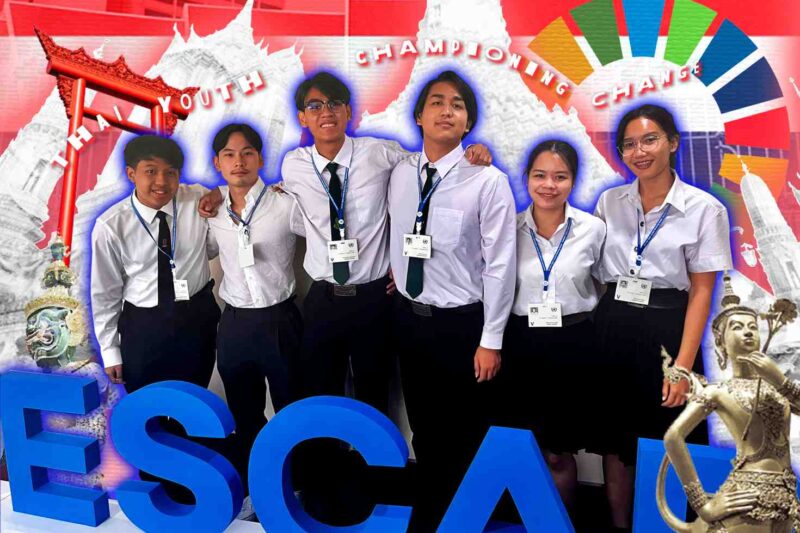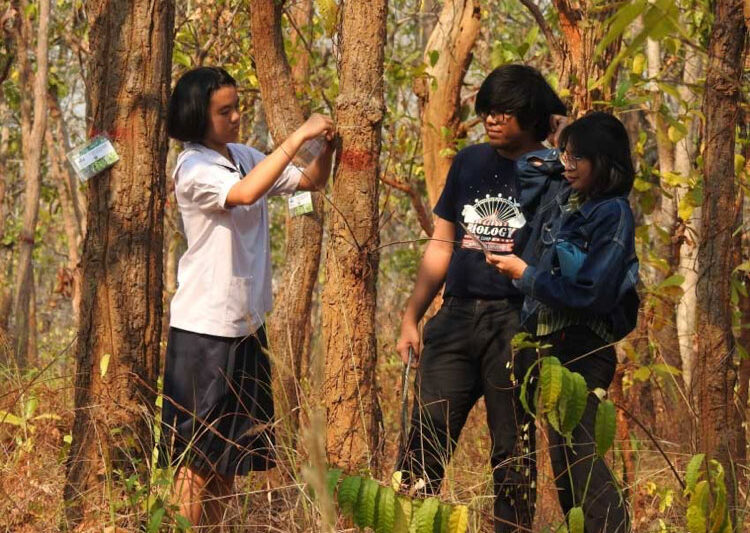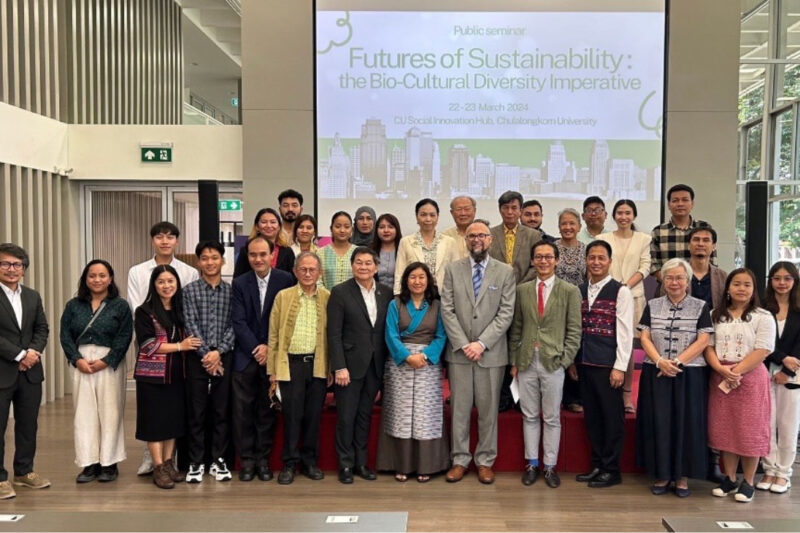2022 Worldwide Teach-in on Climate and Justice Chulalongkorn University and Association of Pacific Rim Universities March 30, 2022 | 9:30-11:30 AM Post-seminar Report
Photo by Markus Spiske on Unsplash
The Worldwide Teach-in on Climate and Justice is an educational forum that encourages participants to engage in solution-oriented conversations while maximizing student or community engagement. The Teach-in featured experts from multiple disciplines who discussed about climate change from their disciplinary perspectives.
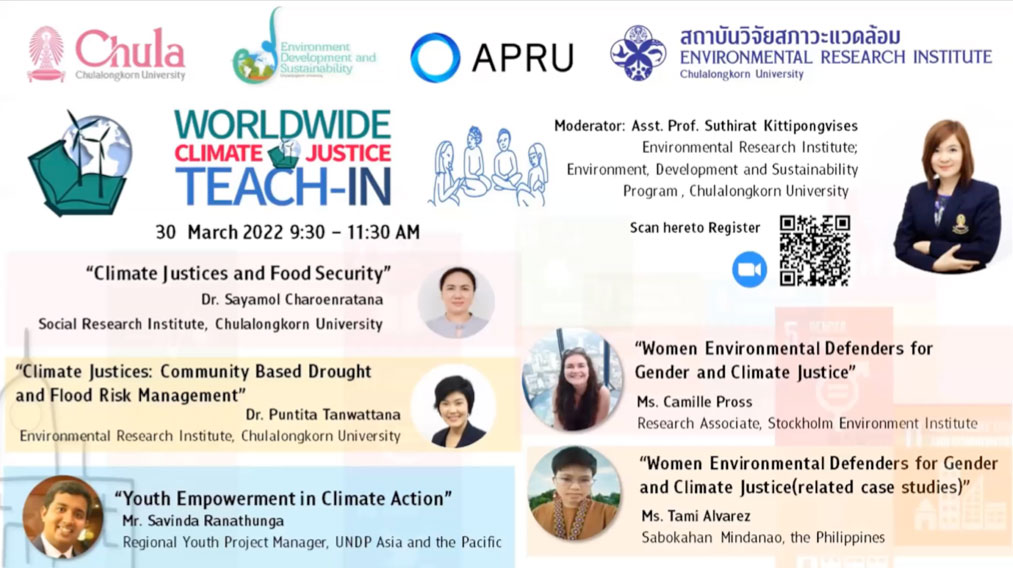
This virtual seminar held on March 30, 2022 was organized by the Association of Pacific Rim Universities and Chulalongkorn University, in particular, Office of International Affairs and Global Network, Environmental Research Institute and Environment, Development, and Sustainability Program. Academics, civil society organizations, practitioners, and students were invited to partake in a critical dialogue on just climate solutions that will put us on the path to solving climate change by 2030.
Dr. Ram Piyaket, Director of Office of International Affairs and Global Network, opened the activity by reminding us about the Office’s mission which is to “drive the contributions of the university to global society and communities.” He highlighted that through research and education the promotion of the core values of global citizenship, global connectivity, and a sustainable society is continually being realized. Dr. Ram also called the current moment as the “time to take action and take necessary steps to achieving sustainable and just climate actions.” He cited that this event can “contribute to local and global climate solutions” and at the same time “provide opportunities for collaborations.”
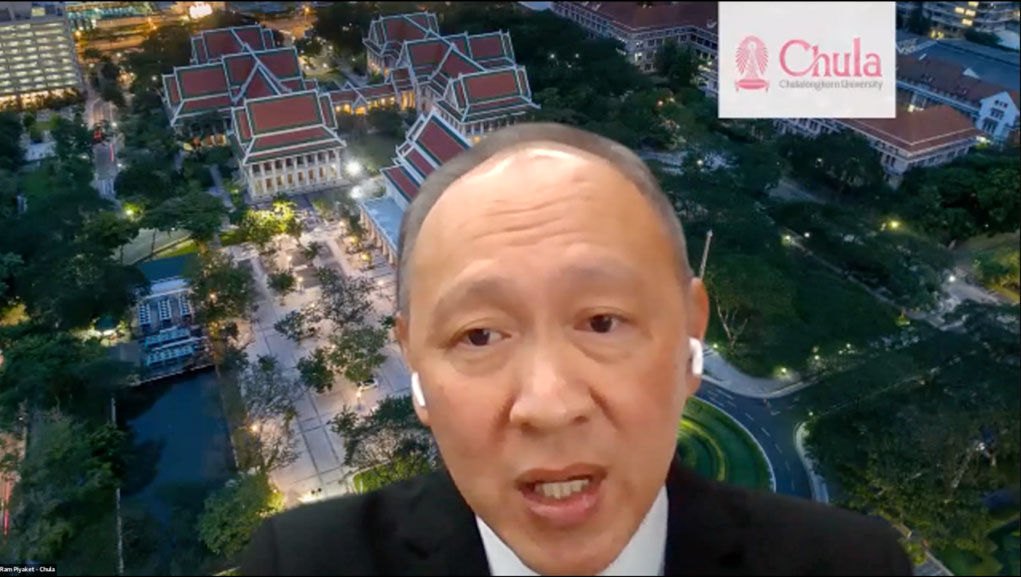
Further, Assoc. Prof. Dr. Pantawat Sampanpanish, Director of Environmental Research Institute went on to emphasize that the goal of this teach-in is to engage people and communities in a meaningful conversation about what we can do to lead the change for our shared future. The purpose of this teach-in, Dr. Pantawat asserted is “to help move people from climate depression to a sense of agency engagement and leadership on climate solutions.”
The opening session was followed by five presentations from expert faculty members and practitioners who each showcased their works and experiences from working on the ground. The topics discussed were able to shed light on the plight of particular communities and sectors in relation to climate change, and underscored the importance of working together to create local climate actions that have global impacts.
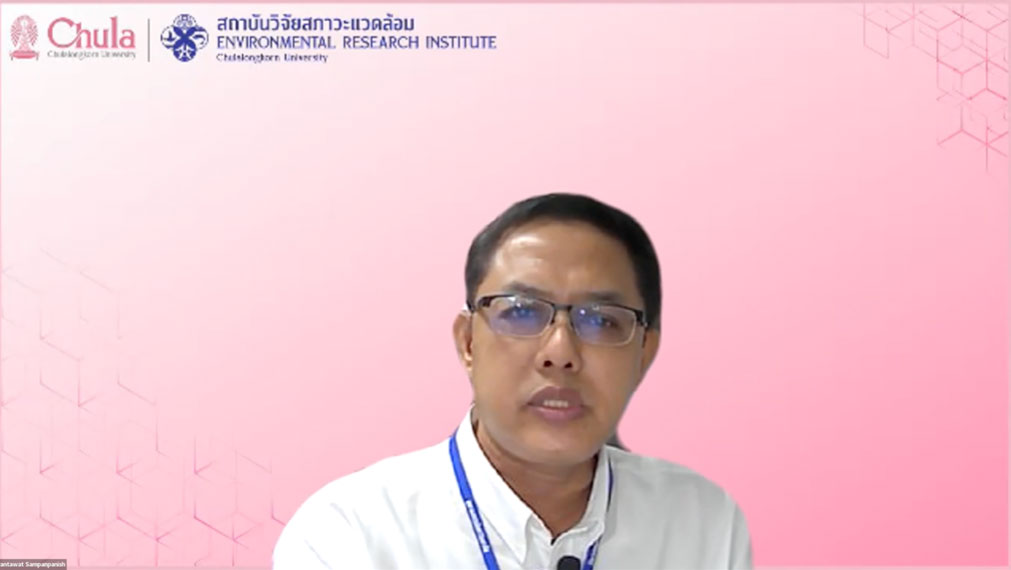
The first presentation was delivered by Dr. Sayamol Charoenratana of the Social Research Institute who talked about Climate Justices and Food Security. Dr.Sayamol pointed up the issue of food production in light of the increasing impacts brought about by climate change. Food security and climate change are related, she told the audience, “because climate change impacts food production which may lead to global food insecurity and ultimately, increased hunger.” She also added that the impacts of climate change is severely affecting the vulnerable populations including “children, women, the poor, and the low wage workers,” thereby creating climate injustice. Dr. Sayamol motivated everyone in pushing for “ a just, fair and equitable sharing and division of both climate benefits and burdens” through the enforcement of responsibilities in dealing with climate change.
Consequently, Dr. Puntita Tanwattana from the Environmental Research Institute of Chulalongkorn University contextualized four linkages in achieving both climate justice and climate and disaster resilience in her presentation about Climate Justices: Community Based Drought and Flood Risk Management. In offering a framework for linking climate justice and community-based risk management, Dr. Puntita drew on her own experiences in working with local communities. She elucidated that fairness in terms of access to risk information can foster increased ability to deal with risks. She also argued that “high-risk groups or those in high-risk areas must implement a special measure compared to those in low-risk areas” to maintain equity and to reduce risk. Still, she affirmed that “the process should be transparent and participatory” while being “people-centered and inclusive of all stakeholders in decision-making” through co-creation of plans to reduce the community’s vulnerability and enhance their capacities.
Shifting the discussions in the community level, Mr. Savinda Ranathunga, the Regional Youth Project Manager of UNDP Asia and the Pacific, talked about the role of organizations in addressing the issues of climate justice. Mr. Savinda focused on the role of youth as climate leaders especially that “approximately 60% of the world’s youth population are in the region.” He asserted that within the region there is a need to “do more programming and then supporting young people with a more supportive environment.” He maintained that climate actions must also “safeguard the most vulnerable populations including children and young people” by providing opportunities for “young people to be leaders” in order to “lead their own actions, discussions and policy.”
Aside from age, other factors such as gender, indigeneity and caste were pointed out by Ms. Camille Pross, a Research Associate in Stockholm Environment Institute, in her presentation of Women Environmental Defenders for Gender and Climate Justice. She highlighted that these factors “intersect and make some people more excluded in society” particularly in top-down strategies for development and climate action. This could mean that these people’s needs, interests, and indigenous knowledge and practices are overlooked which “often results in development aggressions which refers to an unequal distribution of the costs and benefits.” With environmental resources still being overexploited, Ms. Camille significantly stressed on the role of environmental defenders who “actively challenge the unequal power structures underlying environmental destruction. In particular, she featured women environmental defenders “challenging patriarchal norms.”
Ms. Tami Alvarez, the Vice-Chairperson for External Relations of the Sabokahan Unity of Lumad Women in Mindanao, Philippines likewise shared the actual experiences of the Lumad people (collective term for Mindanaoan indigenous people) in southern Mindanao. Ms. Tami accentuated the role of women and girls in the resistance against exploitative industries and human rights violations especially in the case that their ancestors have been able to protect their ancestral lands and thick forests from development aggressions. She cited Bai Bibyaon Ligkayan Bigkay as the first woman chieftain of the Talaingod Manobo “who successfully united the tribes of the Pantaron Mountain Range to wage tribal warfare against a logging company that had begun to encroach their forest.” Drawing on from her own experiences, she concluded that the Lumad struggle in defense of ancestral lands and protection of the environment is “just one of the many ways in which indigenous people especially indigenous women are at the forefront of a wider global struggle against extractive capitalism.”
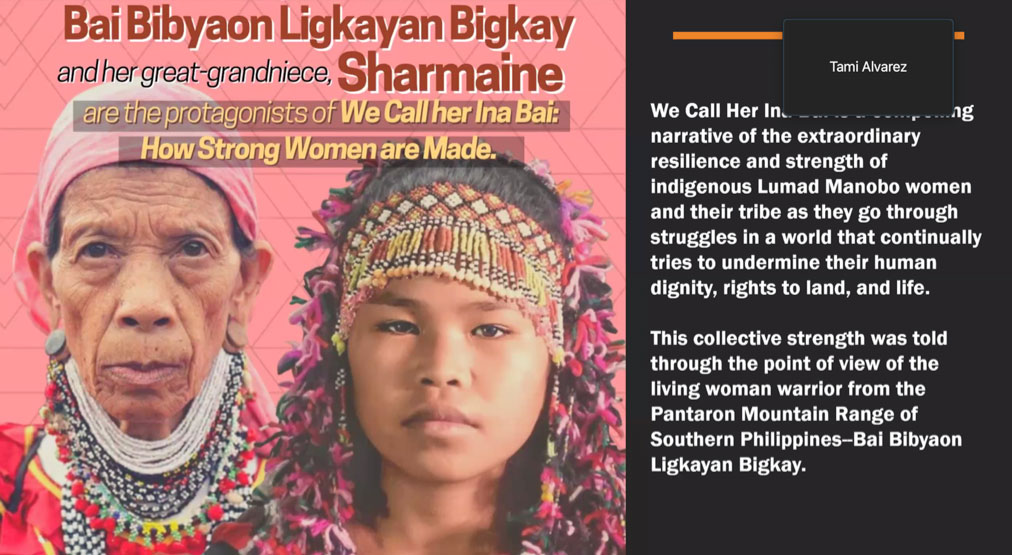
After the presentations, a participant recognized the need for a balance between the livelihood and perceptions of the local people to which Dr. Puntita agreed that there must be a balance between the “future scenario and the present situation” as well as “daily survival and security in the future.”
In her concluding remarks, Asst. Prof. Dr. Suthirat Kittipongvises, Director of Environment, Development and Sustainability Program of Chulalongkorn University, reiterated the importance of “fairness in terms of risk sharing, equity in risk reduction, and transparency by engaging communities to participate, and promotion of inclusive decision-making which caters to everyone.”
The virtual conference was open to the public. It was live-streamed on the Environmental Research Institute’s Facebook page. It brought together students, local communities, academic faculty members and practitioners from around the region as they call for climate action and showcased solutions for climate change and climate justice.
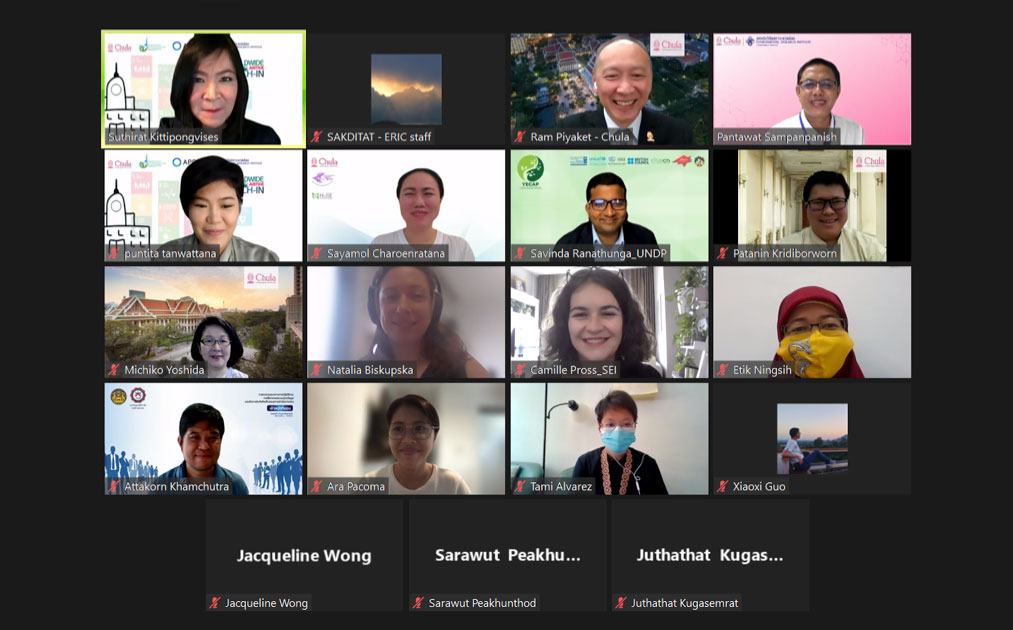
#GlobalEngagement #GlobalCitizenship #ClimateAction #KnowledgePlatform #Partnerships #FutureLeaders #ClimateJustice #WorldwideTeach-In #SDG2 #SDG5 #SDG11 #SDG13 #SDG17 #APRU #GNED
BY
Office of International Affairs and Global Network, Chulalongkorn University
Others

